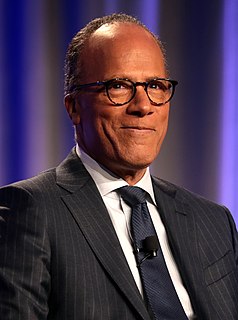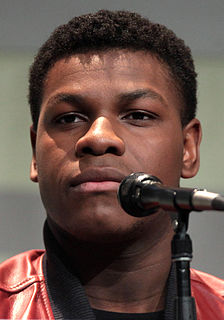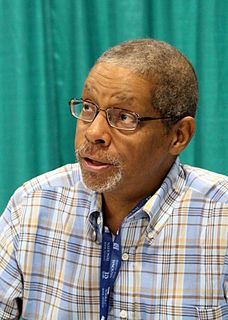A Quote by Roger Ross Williams
Zwarte Piet, or 'Black Pete,' is a relic from slavery. It is something that should have long been eliminated, and it's very insulting to black Dutch people. It's shocking to me that it still exists, but I think it's about the lack of knowledge and education regarding the roots of the character in the slave trade.
Related Quotes
The true story is that black people need to tell their history. Very few films are made by black people about slavery. That itself is a crime because slavery is a very important historical event that has held our people hostage. Forget white people's role in it. In the end what's important is black people remain and live with the scars and psychological issues.
I really bristle when I get called to events and people introduce me as one of the top black anchors in the country. You know, that's very insulting. I'm striving to be one of the best anchors in the country. Handcuff me like that. What you're saying is, 'You're black. You should only expect to rise to the level of the best at being black.'
While I might not have a specific experience that is fully American, there is still a knowledge, something that I logically understand as a black woman and a black woman who is existing in America and a black woman who is in the diaspora that are just known quantities that I think anyone can relate to who is black.
As a kid growing up St. Louis, Missouri, I lived in a predominantly black neighborhood. Any time people talked about slavery, it was always something like, 'If I was a slave, I wouldn't have been putting up with that. I would have been out in a heartbeat.' And it's like, sure, it's a very easy thing to say.
Black History Month is dedicated to heroes that paved the way for Black people. It's a month that's very imperative because it gives those who lack the knowledge of our heroes a chance to gain insight. It's not just about the month, it's about the years that it took for us to get to this one month and it's beyond placing a value on how much Black History Month really means to me.
I wanted to make sure the focus [in The Land] was on human beings themselves and their decisions, but still connected to the urban environment that people associate as being black. I think I was able to make a film without commenting on "black this or black that" and you still feel the presence of it. There's no one character who's saying "we're all black and we're all in this struggle." It's that you just feel it. Some of that is because we get the sense from a lot of independent films that black people struggle all the time.
I felt like it was a courageous show [Black-ish] from the beginning. We are a black family - we're not a family that happens to be black. But the show is not even about us being black. The show is about us being a family. That is groundbreaking - on TV, the black characters either happen to be black or they're the "black character," where everything they say is about being black. I think that's the genius.
Actually we've had a black bourgeoisie or the makings of a black bourgeoisie for many more decades.In a sense the quest for the emancipation of black people in the US has always been a quest for economic liberation which means to a certain extent that the rise of black middle class would be inevitable. What I think is different today is the lack of political connection between the black middle class and the increasing numbers of black people who are more impoverished than ever before.
Colonization was the idea that once slavery ended African-Americans should be encouraged - or required, in some people's view - required to leave the country. It's part of an attitude toward the abolition of slavery which says America should not be a slave society, but it can never be a multiracial society. You can never have free black and white people living together.
Hollywood is so fixated on keeping it that way because it's generating the buzz, but that representation isn't right. I definitely feel like it's getting better - it's not only for blacks, but for people that are of all different skin colors. It is very important that black independent films get seen. We need to start getting used to black people. They exist. And they've been around for a long time. It's amazing that people still feel, "Oh my gosh, it's a black guy."

































